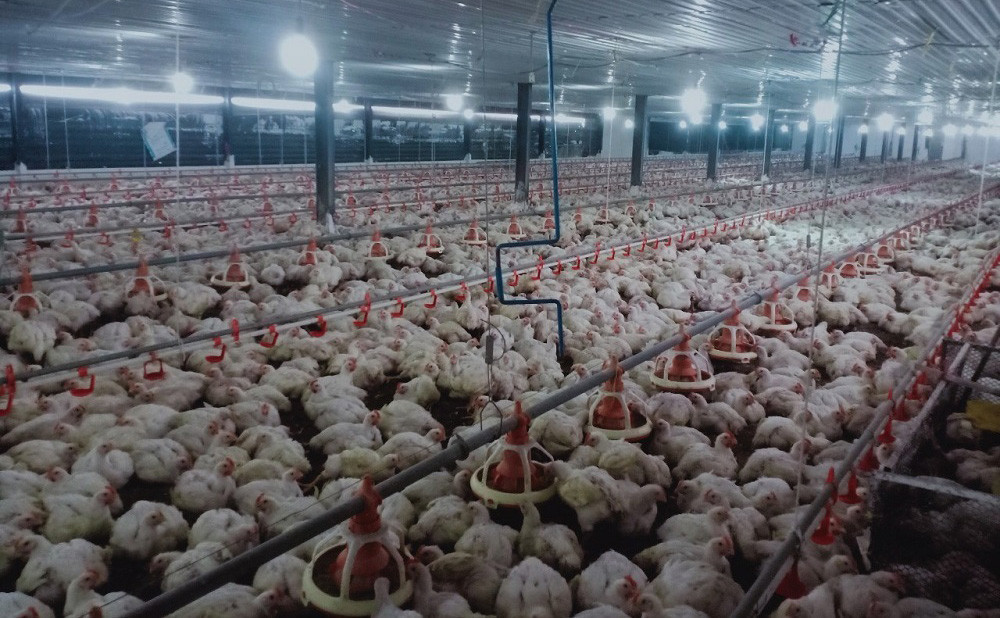
Animal husbandry is a livelihood of millions of Vietnamese farmers. However, enterprises are in danger of going bankrupt. The situation is getting worse as cheap imports are arriving, ousting domestic products from the home market.
Minister of MARD Le Minh Hoan said:
There are many problems existing in the animal husbandry, not only epidemic control. I have read some recommendations of livestock associations and enterprises. Some of them wonder why we have not created technical barriers to restrict imports, or why we have allowed imports when our products are plentiful.
But the story is not just allowing or not allowing imports. We have joined the international market. In order to sign protocols on exporting certain products to certain countries, in exchange, we have to allow imports of some products from countries under strict control to ensure food safety.
We cannot prohibit imports, but we can control them, because imports not only affect consumers but also our livestock industry as a whole.
Meanwhile, prevention of smuggling is related to many agencies and units. Because many agencies get involved in this task, there is some awkwardness in cooperation.
We work with associations and foreign invested enterprises. They are partners. We have integrated into the world’s economy and we need internal strength to be equal and cooperate fairly with them, thus forming chains of links.
I had a discussion with businesses this morning. They wanted localization of some materials for animal feed in order to gradually reduce imports. Our ministry will support them in this work, because this is difficult work that needs settlement.
Nguyen Thu Thuy, deputy head of the Department of Animal Health, said:
All animal-related products imported into Vietnam must follow a 5-step evaluation and negotiation process. Therefore, it is unreasonable to say Vietnam imports cannot meet quality requirements.
We are a member of the World Trade Organization ((WTO) and chicken in Vietnam, after a period of being raised for eggs, can be used for food for humans. We cannot say these types of chicken cannot be used in Vietnam.
The Department of Animal Health will check the standards and meat products imported to Vietnam from South Korea and Brazil. Over the last two years, we have not found any import sample that did not meet requirements.
Duong Tat Thang, head of Department of Livestock Production, said:
Since 2020, the livestock industry has been facing difficulties because the market is unstable, investment efficiency is not high, and farmers’ livelihood has been affected. Meanwhile, farming has been threatened by epidemic, and production resources, especially land, have declined.
The problem lies in organization, which lacks connections between the place of production and the market. Also, slaughtering, preservation, processing and deep processing remain weak.
Vietnam is a member of 17 Free Trade Agreements (FTA), including two new-generation FTAs (The Comprehensive and Progressive Agreement for Trans-Pacific Partnership - CPTPP and EU-Vietnam Free Trade Agreement - EVFTA), which pave the way for countries with developed animal husbandry (the US, Brazil and Australia) to increase their exports to Vietnam.
In addition, biosafety livestock production has not been synchronized and infectious diseases still occur, causing supply fluctuations and difficulties for export.
In addition, the production cost of livestock products in Vietnam is quite high compared to the region and the rest of the world.
Notably, while meat prices at farms are decreasing sharply, the prices at urban markets don’t decrease, or decrease very slightly. This doesn’t benefit producers nor encourage food consumption, especially in the post-pandemic period.
Lack of cooperation, information sharing and reasonable profit distribution among the links of food supply chains is a reason.
Tam An